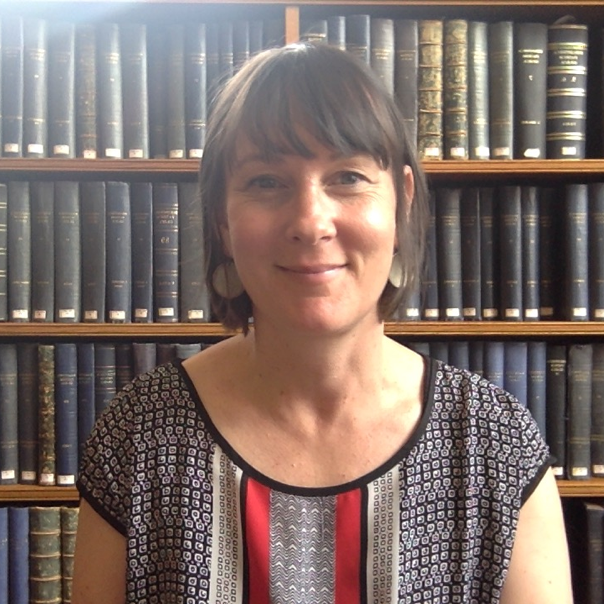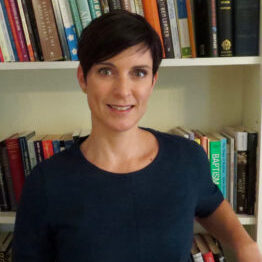Episode Transcript
[00:00:05] Speaker A: You're listening to by the well, a lectionary based podcast for preachers recorded on the land of the Wurundjeri people.
Hi, I'm Sally Douglas.
[00:00:19] Speaker B: And I'm Monica Melanchthon.
[00:00:21] Speaker A: And you're listening to by the well. And the readings that we have this week for Pentecost 6, it's July 20, are Amos 8, 1:12, Psalm 52, Colossians 1, 15, 28, and Luke 10, 38, 42. And we'll have a little look at hopefully all of these readings. Monica. Okay, I'd love to hear your thoughts about Amos.
[00:00:43] Speaker B: Well, I think most people would be quite familiar with Amos. He was an 8th century prophet who, you know, sometimes called the prophet of doom because there's so much of, you know, strong judgmental language, you know, accusatory language in his book.
So the text that we have for today is calling attention to one of these prophetic speeches, an oracle of judgment against the north.
It's interesting also to be cognizant of the fact that he was actually from the south, from a place called Tekoa, which is the south of Jerusalem. But he was called by God from his traditional role as a herdsman to go and prophesy in the north. But in his prophetic book, you will see, see that sometimes he's addressing both, both the north and the, and the south.
And so there are a series of oracles of judgment in the first few chapters of Amos. And this is, I think, number four.
And, and here Amos is, you know, is, is, is calling attention to, you know, Yahweh asking Amos, you know what, what do you see? Yeah, and Amos's, Amos's response is that he sees a basket of fruit.
And I think it is sometimes difficult to see the connection between a basket of fruit and Yahweh's comment.
The end has come on my people of Israel.
But if you know Hebrew, you will discover that the word for fruit and the word for end is the same. Oh, so there's a plan.
Yeah, so that they are similar sounding words. Okay. They're not the same words, but they're similar sounding words. And so, and so there's a pun or there's a word play, word play here. But basically what Amos is doing in this particular chapter is he's speaking against the social injustice and the arrogance, the religious arrogance of the people. And he's warning the people about an upcoming military disaster that will reflect God's judgment.
And this judgment will bring a great reversal of time. So feasts become morning songs. Become lamentations. And all are to put on the clothes of the mourner, you know, namely sackcloth and ashes, and tear out their hair.
And then Yahweh's words will ring out. I will make it like the mourning for an only son and the end of it like a bitter day, you know, so he doesn't mince words.
[00:03:31] Speaker A: No way.
[00:03:32] Speaker B: Amos speaks, you know, quite strongly.
And so. And. And so this unleashing of anger and judgment and rage, it results in a gutting silence. Yeah.
So first there is a talk of famine. It's a famine.
There's a famine in. In the sense that there'll be plenty. But now it's all gone.
[00:03:56] Speaker A: Yeah.
[00:03:57] Speaker B: But there is also a famine of the word, of the Lord, you know, and as I was reading this passage, I was thinking about myself as a. As a teenage. I would do something wrong and my father wouldn't say anything.
[00:04:10] Speaker A: Oh, the silent treatment, Monica.
[00:04:12] Speaker B: And, And. And so sometimes that was worse than when he would just, you know.
Right.
[00:04:19] Speaker A: Yeah.
[00:04:20] Speaker B: Say something. Yeah, yeah. So. So the silence would then make me want to go and say I'm sorry, you know, he hasn't said anything. He hasn't expressed anger. He's just silent. So here sometimes I think the, The. The. The confusion, the disequilibrium that such a silent treatment results in, you know, is what Amos is talking about, that God will be silent. And this silence is going to be loud.
[00:04:52] Speaker A: Yes.
And the heart of God's rage is treatment of the poor and the needy. I find this so profound in this passage, so innate. For hear this, you that trample on the needy. Hear this.
I know that we're not often in mainstream Protestant churches very keen on judgment language, but increasingly I find enormous kind of comfort in this language when we're seeing mega, like, obscene wealth and so few consequences, aid being cut from places which need it, and people having weddings of extraordinary wealth while all the. While and all the costume changes and all the wealth and this promise that God says this, and God is furious.
[00:05:37] Speaker B: I think we need to pay attention to the fact that, you know, the nation is going to suffer ruin at the hands of the enemy. Okay. This is God's judgment.
But the people will also have to experience divine silence, that God is not going to intervene. God is going to be silent.
I think it's important, as disturbing as this text is, to actually give it a fair hearing. Yeah. And I think we need to. It is there for a purpose.
[00:06:07] Speaker A: And.
[00:06:10] Speaker B: So, you know, we see the inequalities in the world and of course, if you are coming from a particular context where you see the struggles of the poor and the marginalized and you feel hopeless and helpless, there is a. You can go into a rant, you know, both against God and against the people who cause these. Who are at the root of these inequalities.
[00:06:31] Speaker A: Yeah.
[00:06:33] Speaker B: Finding an answer to it. Sometimes we might say, what can we do, though? Because it's too big a problem for any one of us or any one community to resolve. And so we tend to stay back, maybe, and not do anything.
[00:06:47] Speaker A: Paralyzed.
[00:06:48] Speaker B: Yeah, yeah. So I think in a way, the text is calling our attention or is calling. Is awakening our moral compass.
[00:07:03] Speaker A: Oh, that's beautiful language.
[00:07:05] Speaker B: And. And is saying, okay, this is what you see and what is therefore your response?
[00:07:10] Speaker A: Yes.
[00:07:10] Speaker B: As a person of faith. Yes. This is not what God wants.
[00:07:14] Speaker A: Yes.
[00:07:14] Speaker B: But so what can you do to. To help to.
[00:07:18] Speaker A: In your particular context? That's right. We always have power. We can always.
[00:07:21] Speaker B: Yeah, yeah. So I think the answers, you know, there's no. The solutions are not simple. They are complicated.
And.
But we noticed that there are a lot of parallels between what the text is calling attention to as to what was happening in the world then to also. And parallels to what. What is happening today. I mean, I don't think that it's very different.
[00:07:44] Speaker A: No, that's right. So rather than coming to these texts, I think sometimes people can come to prophetic texts and think, see, that predicted the future where there's so much more in the prophetic tradition, this awakening to what is happening now and calling for change.
[00:07:57] Speaker B: So I think in a way, the text is challenging us to tackle poverty, inequality and suffering in the world, both at a personal level and perhaps at a systemic level as well.
We think that only saying, okay, God loves you and God understands our suffering, it's not enough.
[00:08:18] Speaker A: It's not enough, Monica. Yeah, exactly.
[00:08:21] Speaker B: And there has to be. If we believe in a God of justice, then we need to exemplify or in practice show that we do believe in a God of justice and therefore work.
[00:08:34] Speaker A: And I think that's really inspiring to think about, really just take seriously and have conversations in our communities about how we live out this discipleship. Because in this passage, there's also, I think, a critique of consumerism, like rampant, you know, where the people are complaining that they can't keep buying and selling when it's a day, a holy day. And we think about our culture, which is of kind, constantly telling us to buy, that we haven't got enough, that we are not enough. If we just buy the next thing. Then we might be enough to find ways of acting as communities of resistance towards that is really powerful.
[00:09:03] Speaker B: Yeah. And I think, you know, any preacher should not shy away from addressing this and calling attention to this.
It is disturbing.
But it's good to be reminded of the concern that God has for those who.
Who do not have.
[00:09:22] Speaker A: That's right.
[00:09:23] Speaker B: Yeah.
[00:09:23] Speaker A: Rather than just sit silently in guilt, let's have an open conversation about it.
[00:09:27] Speaker B: And the church needs to hear this message again and again. Yeah.
[00:09:38] Speaker A: So there's some more themes that we see in Psalm 52 as well, exploring this.
[00:09:43] Speaker B: Yes, Psalm 52, an interesting one.
Some scholars have called this an individual lament because it begins with a very strong you complaint. You know, you are this, you are that, you know, and this you is someone who is an enemy to those who are people of faith or to, you know, to the godly.
And then the psalm continues with an announcement of future punishment. And then it ends with an affirmation of trust in God and a vow to praise God. And so you notice that there are some similarities in the language, you know, similar to the prophetic speech in Amos, which often begins with the message of God's judgment against an individual or against a nation. There's an accusation.
It can be past or present tense, you know, an announcement of future followed by perhaps an announcement of future punishment. So you notice that this is happening here as well. And the one who is being addressed as the you is someone who is referred to as the Mighty One.
Why this person is called the Mighty One is ambiguous. Very often the identity of the enemy in the Psalms is always shrouded in some mystery. So you have to guess who this enemy might be. But it's obviously someone who is planting evil in the community.
[00:11:09] Speaker A: Yeah. Your tongue is like a sharp razor. You love evil more than good and lying more than evil. Speaking the truth. You love all words that devour. I mean, it's so evocative.
[00:11:19] Speaker B: Yeah. So this is someone who. Who takes pride in what he's doing, who's boasting, you know, about the. About the deeds and the evil that this person is. Is venting, is as sharp as a razor. Yeah.
And so obviously this is some person who has a lot of faith in, and trust and confidence in his own wealth or her own wealth.
[00:11:45] Speaker A: That's right. That sense of absolute entitlement. And there's going to be no consequences for me and my word. Do we say that in our. In our current context? Yes, we do. And so there's such promise I think in this about you are seen and there will be a. You won't get to win. Like there is a calling to account.
[00:12:01] Speaker B: Right. And very quickly, I think the psalm then contrasts this with a person who lives in the house of God and this person is like an olive tree. And I've said this before in one of the earlier podcasts, you know, if you were to go through an exercise and ask your readership or your group, which tree do you identify with and why? I think it would be an interesting exercise.
[00:12:27] Speaker A: Isn't it beautiful?
Whichever tree people might choose, What a beautiful image. So you're not being like a fortress, you're a tree, you're alive, you have energy running through you and you are held by God in that energy.
[00:12:40] Speaker B: And of course, here the tree that is being referred to is the olive tree who is living in the presence of God, rooted in God, who trusts in the loyalty and the steadfast love of God. And the psalm ends with a prayer of confidence that God will deliver this individual from this evil one, the mighty one. I think the central theme in this psalm, therefore is trust. Who do you trust in? Where do you place your faith?
[00:13:09] Speaker A: Okay, absolutely.
[00:13:11] Speaker B: So where does your confidence come from?
[00:13:13] Speaker A: Yeah.
[00:13:14] Speaker B: And of course here, therefore, contrast is being made between someone who is rooted in materialism. Yes, exactly. And behaves, you know, in ways that are contrary to the well being of the community.
[00:13:27] Speaker A: That's right.
[00:13:28] Speaker B: And then you have the other who lives in the temple or, you know, is rooted in faith. That's right, in God.
So that is why some others will say that the psalm is actually a paranetic didactic wisdom. So it's with the object of leading the community in which it was composed out of its distress and crisis to a renewed hope of salvation and trust in Yahweh, one scholar writes. So there are links that the preacher can make between the text in Amos and this particular psalm.
[00:14:13] Speaker A: And I think that beautiful quote you just shared remains true. So that reading this psalm together as a community, responsively, verse by verse, or in some way, could be really powerful just to let the name the despair, like name that rage that this is happening. But then to rest in that final place of there is one who's more powerful than those with all the buildings, all the properties, all the guns, and they are the. The one who will have the last word.
[00:14:36] Speaker B: Yeah, yeah, yeah. That scholar by the name is, by the way, is Byron. Okay, yeah.
[00:14:43] Speaker A: Okay, well, let's look at Colossians.
So.
[00:14:50] Speaker B: So I leave that to you, Sally, because it's it's not a text that I'm very familiar with, so. So what can you teach me?
[00:14:57] Speaker A: Oh, Monica. Well, we said yes to doing this week, and I hadn't even looked at the readings. And when I opened up, I. I was delighted because this is one of my favorite passages in the whole New Testament.
So we don't know who wrote Colossians. It used to always be attributed to Paul, but there's more debate. I tend to be a bit agnostic. When we don't know, we don't know. It is seen as early and written to a community.
It's said to be written to a community in Turkey, though I think there's a sense in which people knew that letters were being passed around.
And within chapter one, we have this astonishing hymn fragment. So Colossians 1:15-20 is commonly regarded by New Testament scholars as a fragment that existed before the letter was written, either sung or prayed or both by this community, by the author, but perhaps across different communities. And it has really strong parallels with the Philippians hymn and with the prologue in John's Gospel and with a fragment in Hebrews and the beginning of Hebrews, Hebrews 1 and verses 3, that section. And then in this letter that didn't make it into the canon written by the church in Rome, back to the poor church in Corinth, who Paul kept writing to.1 Clement 36. So this is part of this extraordinary window.
I and other New Testament scholars would argue this is the earliest evidence we have within the New Testament, these hymn fragments, because they're composed before the. Before the Gospels, possibly before the letters as well. And it gives us like a window into what they're doing in worship, what they're. And I think sometimes that is the best way to think about, to find out what people are really thinking about their faith is how do they pray?
Who is God to them when they're at prayer? And here is. It's just extraordinary, Monica. So let's just have a look at it. It says, talking about Jesus, he is the image of the invisible God, the firstborn of creation. For in him all things in heaven and on earth were created things, visible and invisible, all things. Tarpenta is the Greek. And that shares commonality with the all things in John's Prologue. And also in Hebrews, there's another tiny little fragment in Corinthians 1 Corinthians 8:6 as well. So this really early material is celebrating Jesus in extremely high Christology. So Jesus hasn't just been raised, that's celebrated, but more than that Jesus is the one from the beginning through whom all things created. And it's commonly recognized by biblical scholars that across these hymn fragments, Jesus is being imaged as Sophia, the female divine Hokma.
So yeah, she who is present in Proverbs and she's with God in the beginning, firstborn of creation and the wisdom of Solomon. Everything is made through her. She orders all things well and she's imaged as light, which the prologue of John picks up as well. So throughout this hymn, Jesus is imaged as the female divine. And if this is new material to you, a couple of weeks ago it came up in one of the other readings that we had that Fran and I talked about. And there's a link to a podcast where I've spoken at length about this kind of. Because it hasn't been talked about in the church. It's quite shocking at first.
What's fascinating in this year and we've recently been at a at a conference celebrating the Nicene Creed. It's 1700th anniversary of the creed. And in the creed it draws so much from this understanding the Colossians hymn and in prologue about Jesus being light from light, true God from true God through whom all things. So it's sometimes people argue that that kind of proclamation in the three hundreds is a later edition. It's an add on. It's here in the earliest church. And I just love that. So I don't know, I think it'd be quite beautiful to invite people to stand up and say this together as the reading make it like a song or a prayer.
It is extraordinary. And the implications of it are that the God that we believe in is the God who cares for the porch we already know from the Old Testament, but is the one who chooses to dwell with us in person.
[00:18:56] Speaker B: Like that is the word made flesh.
[00:18:58] Speaker A: The word made flesh. It's extraordinary claims. And while there are whole lots of Greek and Roman gods and goddesses who do descend to Earth, usually they do so to do trickery or violence.
And Christians from the earliest of times have said no.
The God one becomes flesh, takes on skin, pitches tent with us, and then uses power for others, not over others, uses power to feed, to heal, to forgive, to gather in. And then when it comes to human human violence and human betrayal, chooses not to retaliate with violence, but to absorb our violence and then is somehow more powerful than that violence.
[00:19:34] Speaker B: So I think it's important then also to remember this is God made flesh who lived amongst us. Yeah, yeah.
[00:19:41] Speaker A: Isn't it extraordinary? Face to face. Face to face.
So we could wax lyrical about Colossians. But we probably should look at Luke as well.
[00:19:51] Speaker B: Yes, a very, very familiar story.
[00:19:53] Speaker A: Yes, tricky story.
[00:19:55] Speaker B: Tricky, yes. Familiar. You learned it in Sunday school, you know, you want to be the Mary or do you want to be the Martha?
And, and I remember, you know, we were always told to choose. No, yeah, yeah, in a way, you know, because. And I think into some way, in some ways, Jesus is the, you know, creates the problem by saying, Mary has chosen the better path.
[00:20:16] Speaker A: Yeah, the Luke and Jesus. Yes.
[00:20:17] Speaker B: Okay. But we are reading Luke.
[00:20:19] Speaker A: That's right.
[00:20:20] Speaker B: So. So that has created, you know, this choice.
So who do we want to be with? And Jesus doesn't help with his statement, you know, that there's need only of one thing. Mary has chosen the better part, which will not be taken away from her, you know, so here there is, I guess there are various ways to interpret this.
I was thinking of the fact that, yes, Martha has chosen the more traditional role of preparing the meal and getting ready to hospital, you know, to offer hospitality and so on, which is the traditional role.
[00:21:04] Speaker A: Right, that's right.
[00:21:05] Speaker B: And so in a way, Jesus is saying, listen, you have chosen to do that, so just pay attention to that. Don't worry about what your sister is doing.
And in some ways, yeah, it reinforces, I think, a stereotype.
[00:21:23] Speaker A: Of course, this is part of the trickiness, I think. So true. It's weird. So I think this is a particularly Lucan story and it's interesting that it comes just after the story of the Good Samaritan. And some would argue that because the lawyer comes and says, what do I have to do? Love God, love neighbor. So the Good Samaritan story is about how to love neighbourhood and it's about the outsider who models that. And then that the next story with Mary, Martha, is about how to love God and that Mary, as a woman who's an outsider, does that. So that's an interesting wider contextual thing. And some people argue that because Mary sits at Jesus feet, which is the male place to sit, and she won't get up and do all the things that women are told to do, the serving. It's a disruption of patriarchy because Jesus affirms her. And I can see that argument. But I also think, well, Martha just got slammed a bit here and she's doing.
[00:22:13] Speaker B: Yeah, I've seen people use hospitality as kind of the, the, the glue. Yes. To talk about both these passages and, and in this, you know, Martha is doing hospitality, showing hospitality, preparing for it, and is distracted by the fact that, you know, she's not able to hear Jesus. And so in a way, Jesus's reprimand is saying, look, you continue to do what you're doing.
[00:22:36] Speaker A: That's interesting.
[00:22:37] Speaker B: You know, so in a way, it's an argument against how we might be distracted by the many things instead of focusing our attention on what we're doing. But in the case of Mary, you know, okay, she has chosen. She has, in a way, you know, disrupted patriarchy a little bit. But technically, you know, she is sitting at the feet of Jesus. Yeah, exactly. You know, and listening. She doesn't speak.
It's not a dialogue.
[00:23:01] Speaker A: Now, I think that's a really important point. And so we are introduced to characters of the same name in John's Gospel, Martha and Mary and their sisters as well, different contexts. Lazarus is their brother. Now, in John's Gospel, they are full people, the characters, they have theological conversations and kind of rigorous conversations with Jesus. I think the author of Luke is doing something different here. I feel like they're not as dimensional, the three dimensional characters, and there is this kind of reduction of them.
[00:23:28] Speaker B: So, you know, so in a sense, I wonder that, okay, is, is Jesus affirming a woman to sit at the feet of the one who knows it all and listen? So in a way, it's also a reinforcement of another image of woman to be silent, to listen.
[00:23:48] Speaker A: Can I be honest with you? I think that the author of Luke is actually not that favorable towards women.
[00:23:54] Speaker B: Oh, really? Okay.
[00:23:55] Speaker A: And I think we see this again here. I really do. And the other thing that for the author of Luke is this ongoing focus with leaving everything, the disciples, which is not in Mark's Gospel, the disciples leave everything and follow. And there's this ongoing emphasis and in Acts that's picked up as well. You know, the disciples, they shared everything in common, the early church and those who didn't get terrible consequences.
And so I think that that flavors in this too, that Martha's not leaving everything. She's still involved in household things where Mary's doing what the author of Luke thinks is the ideal. So it feels like there's like Luke and agendas driving this.
And it's been used, of course, by people with power, who are often men, to suggest women should therefore stay in the kitchen or chastise Martha or elevate.
[00:24:41] Speaker B: Mary or basement going to be in the room, sit at the feet, Sit at the feet, sit quietly.
[00:24:46] Speaker A: Exactly. It's been used in all of those ways.
[00:24:48] Speaker B: Yeah, yeah, yeah.
[00:24:50] Speaker A: So if, if I, if I were Preaching. I think I'd name some of that trickiness.
And maybe the question is to invite all of us to think about, are there times in our lives when we're too distracted doing what we think we have to do, what we've been told to do, and we need to come back from that, you know, because that's an invitation. That's a good invitation.
[00:25:09] Speaker B: Yeah.
[00:25:09] Speaker A: And are there times when we're actually so. So focused on what we want to do in our spiritual journey that we're neglecting others? You know, I'm not saying that Mary did that, but you could argue that, you know, so that there's, like. There's an invitation to think about our Mary and Martha.
[00:25:24] Speaker B: Yeah. I mean, there's. There are certain ways in which, you know, this story is spiritualized, you know. Okay. Both of them are the calling of women. Yeah.
[00:25:32] Speaker A: Yeah.
[00:25:33] Speaker B: And. And I. And I don't know. I don't know how helpful that is, but I think we as preachers need to be cognizant of the implications of such spiritualization of these roles and to.
To. To be clear that we are actually reinforcing the status quo.
[00:25:50] Speaker A: You know, I agree.
[00:25:51] Speaker B: Yeah.
[00:25:52] Speaker A: I really agree. So wrestle with it. Open up the invitation for other people to wrestle with it.
[00:25:56] Speaker B: Yeah.
[00:25:57] Speaker A: Yeah, yeah. Or. Great to talk with you, Monica.
[00:26:00] Speaker B: Yep. Thank you.
[00:26:04] Speaker A: By the well is brought to you by Pilgrim Theological College and the Uniting Church in Australia. It's produced by Adrian Jackson. Thanks for listening.





